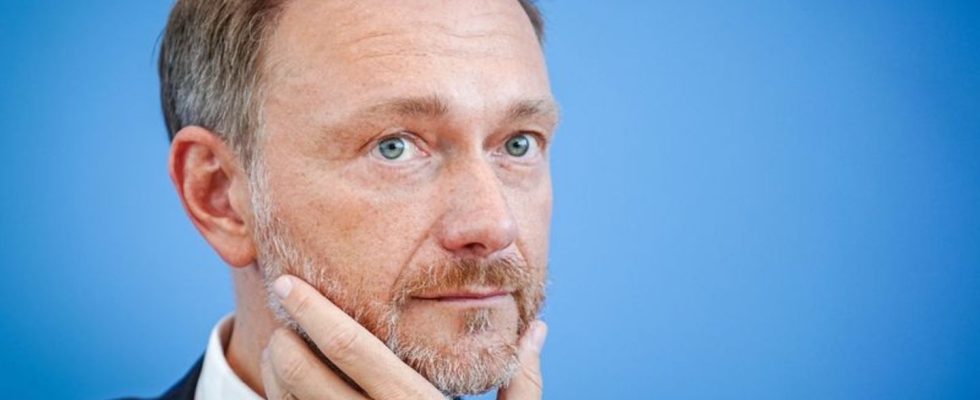finance
Billions in the budget – Lindner wants austerity
Federal Finance Minister Christian Lindner wants to curb spending growth. photo
© Kay Nietfeld/dpa
According to Finance Minister Lindner, 14 to 18 billion euros is the gap in the next federal budget. He is now asking for a waiver. The traffic light budget dispute is entering the next round.
Federal Finance Minister Christian Lindner (FDP) wants to embark on an austerity course, citing gaps in the billions in the next federal budget. He attuned the traffic light coalition to cuts and uncomfortable decisions. The coalition partners SPD and Greens reacted reservedly.
Lindner told the “Rheinische Post”: “Politicians have to learn again how to get by with the money that the citizens generate.” Each individual expense will now be discussed “on the basis of its justification and its amount”. “Some cherished habits will also have to be put to the test.”
Due to discrepancies in the coalition, key figures for the 2024 budget have not been decided this year, as is usually the case. The government draft is now due to be approved by the cabinet on June 21 after the tax estimate for May. After that, it’s the turn of the Bundestag, which wants to decide on the budget at the beginning of December.
“Budget gap must be generated through renunciation”
Lindner outlined the dimension of the gap: “As of now, we will have a deficit of 14 to 18 billion euros in the coming year with revenues of 424 billion euros. This budget gap must be generated by doing without.” If you then want to set additional spending priorities, for example in defense or education, then you have to cut even more elsewhere. Tariff increases in the public sector should also be taken into account.
Lindner told the newspaper that the imbalance had nothing to do with the crises of recent years. “In truth, Union-led federal governments have continually introduced new social benefits and subsidies for a decade that were not sustainably funded. The unnaturally low interest rates have masked that.” Now the interest rate level has normalized, instead of four billion euros in interest as in 2021, according to him, it will be 40 billion euros this year.
Criticism from the SPD
The budgetary spokesman for the SPD parliamentary group, Dennis Rohde, told the German Press Agency in Berlin: “In the end, the German Bundestag and not the Federal Minister of Finance decides what the money is spent on in Germany. We expect him to come up with a balanced draft as a basis for discussion. Especially in the present time, we have to ensure that internal, external and social security is maintained. I am sure that we will succeed as a traffic light.”
Green Group Vice President Andreas Audretsch told the dpa: “It’s good that the finance minister is now ready to talk about everything with an open mind. Everything must be on the table, nothing can be left out in advance.” Our children and social climate protection must have priority. “What can go away are climate-damaging subsidies for fossil fuels. “It shouldn’t be that there is money to subsidize huge company cars, but no money to invest in the future and get our children out of poverty. Good budgetary policy means setting priorities.” The left-wing parliamentary group’s financial policy spokesman, Christian Görke, advocated raising taxes for the super-rich.
What next for basic child security?
Controversial in the financial planning for the next few years is the financing of basic child security. Lindner confirmed that from his point of view it is not primarily about additional billions in expenditure, but better distribution. The child benefit, the child supplement and also the standard rate of the citizen benefit have already been significantly increased. “That’s many billions of euros. What still needs to be done is the creation of a digital process, so that all families really get what they are entitled to,” he told the newspaper.
Regarding estimates by Family Minister Lisa Paus (Greens), who had mentioned possible costs of twelve billion euros, Lindner said: “I don’t know their basis. My experts estimate that two to three billion euros in additional aid for families will be paid out as a result of the automation .”
According to estimates by the Ministry for Family Affairs, the so-called child supplement for families with low incomes has so far only reached about every third eligible child. It is assumed that many do not apply because they do not know about their entitlement or the application is too complicated. Like various other state benefits, the child supplement is to be included in the new basic child security system from 2025. A simple application via a new portal is intended to ensure that all beneficiaries receive the money to which they are entitled. The Greens and FDP have been arguing for weeks about how much the project should cost.

